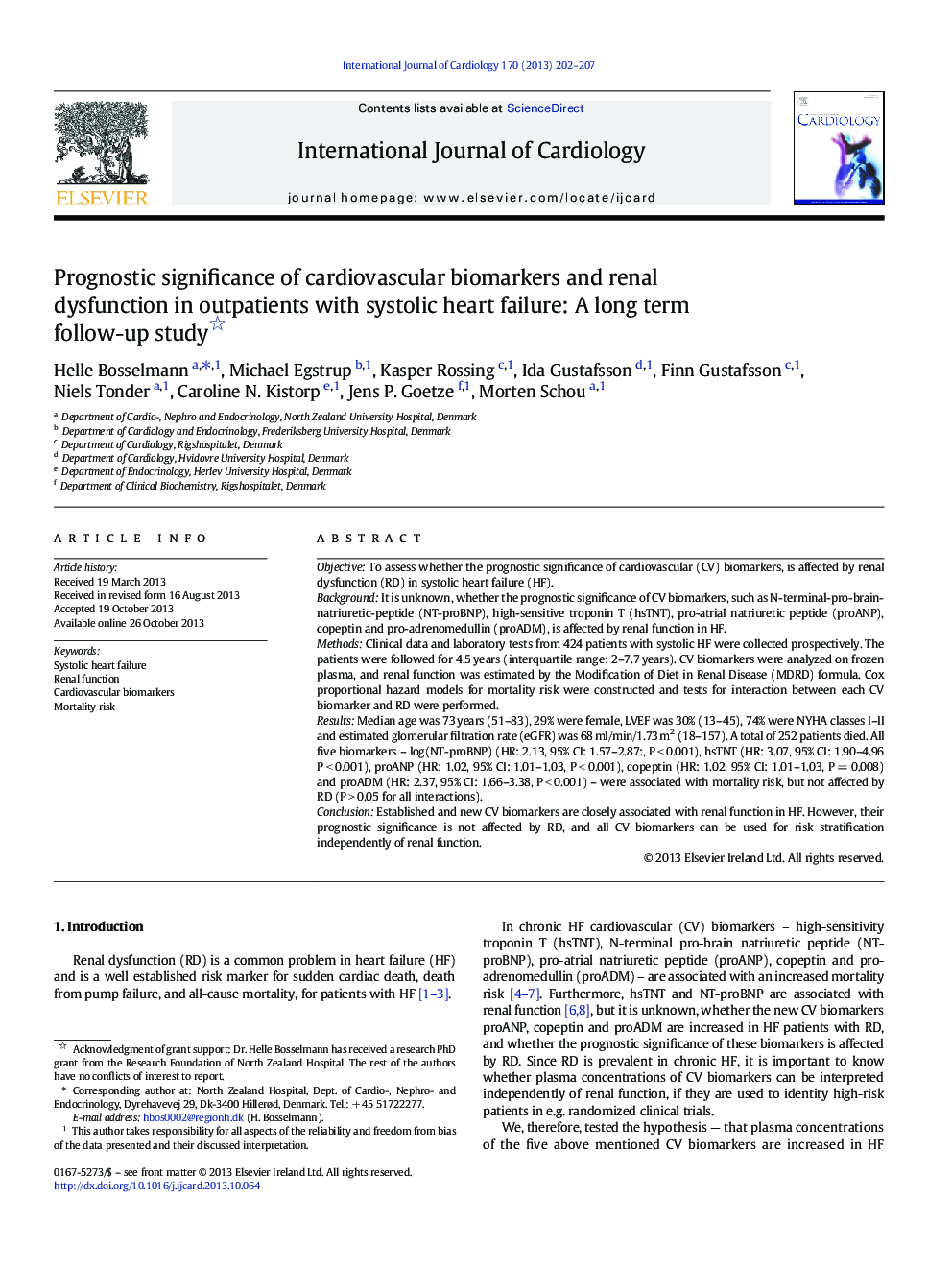| Article ID | Journal | Published Year | Pages | File Type |
|---|---|---|---|---|
| 2929283 | International Journal of Cardiology | 2013 | 6 Pages |
ObjectiveTo assess whether the prognostic significance of cardiovascular (CV) biomarkers, is affected by renal dysfunction (RD) in systolic heart failure (HF).BackgroundIt is unknown, whether the prognostic significance of CV biomarkers, such as N-terminal-pro-brain-natriuretic-peptide (NT-proBNP), high-sensitive troponin T (hsTNT), pro-atrial natriuretic peptide (proANP), copeptin and pro-adrenomedullin (proADM), is affected by renal function in HF.MethodsClinical data and laboratory tests from 424 patients with systolic HF were collected prospectively. The patients were followed for 4.5 years (interquartile range: 2–7.7 years). CV biomarkers were analyzed on frozen plasma, and renal function was estimated by the Modification of Diet in Renal Disease (MDRD) formula. Cox proportional hazard models for mortality risk were constructed and tests for interaction between each CV biomarker and RD were performed.ResultsMedian age was 73 years (51–83), 29% were female, LVEF was 30% (13–45), 74% were NYHA classes I–II and estimated glomerular filtration rate (eGFR) was 68 ml/min/1.73 m2 (18–157). A total of 252 patients died. All five biomarkers – log(NT-proBNP) (HR: 2.13, 95% CI: 1.57–2.87:, P < 0.001), hsTNT (HR: 3.07, 95% CI: 1.90–4.96 P < 0.001), proANP (HR: 1.02, 95% CI: 1.01–1.03, P < 0.001), copeptin (HR: 1.02, 95% CI: 1.01–1.03, P = 0.008) and proADM (HR: 2.37, 95% CI: 1.66–3.38, P < 0.001) – were associated with mortality risk, but not affected by RD (P > 0.05 for all interactions).ConclusionEstablished and new CV biomarkers are closely associated with renal function in HF. However, their prognostic significance is not affected by RD, and all CV biomarkers can be used for risk stratification independently of renal function.
